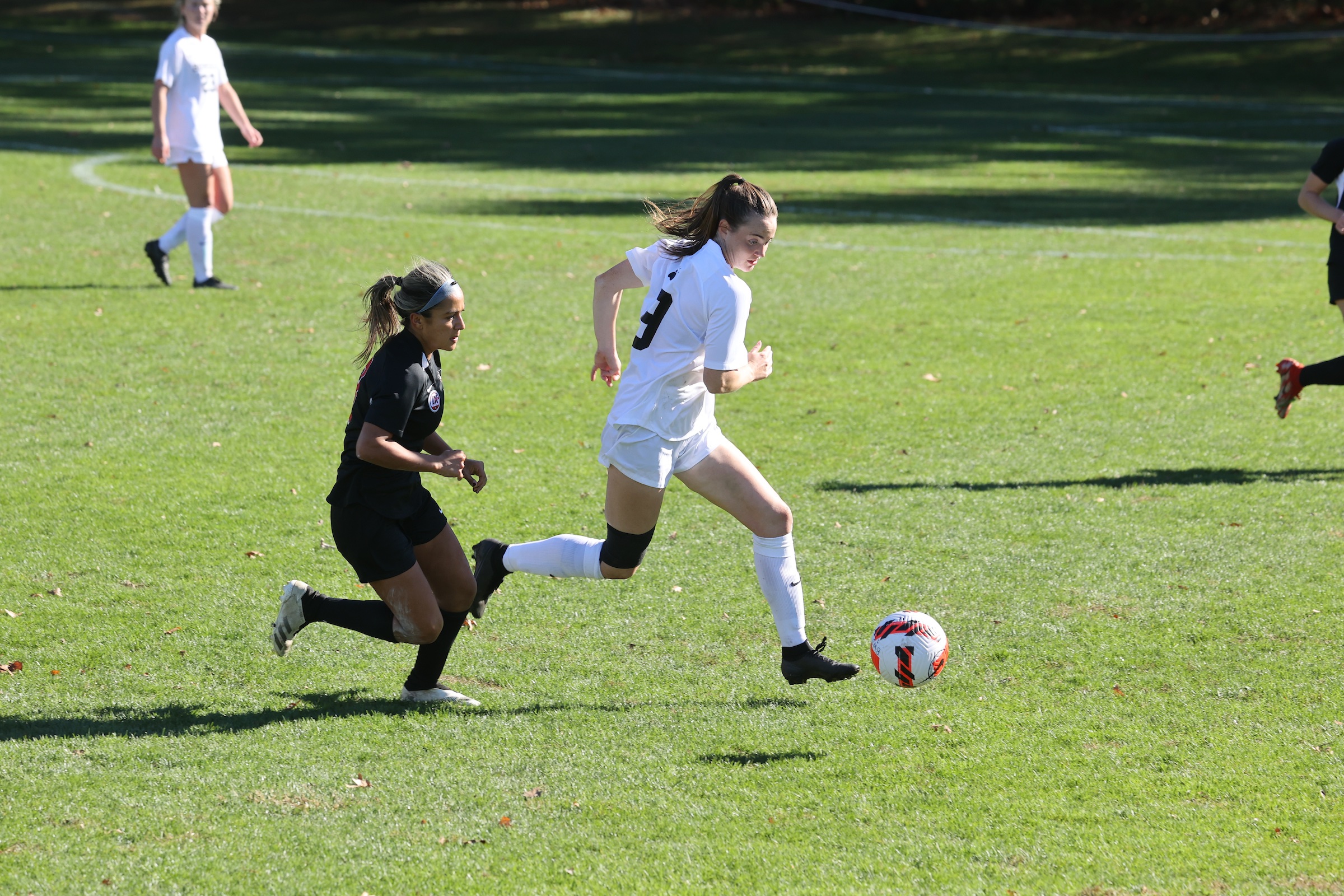Unlocking the 4-3-3: Playing with purpose
November 11, 2022
 Courtesy of Brian Beard
Courtesy of Brian BeardWhen I started this column earlier in the season, I told myself that I was going to be as objective as possible. I have focused on tactics, trends and how the roles of certain players have evolved and changed. Last week was nothing short of an ode to the brilliance of Greta Farkas ’24. This week is a little different.
My relationship with soccer has always been one of love. This November, in fact, marks twelve years and five months since I can recall falling in love with this spectacle of sport. It was a men’s World Cup year, and Spain was the heavy favorite. Riding the success of its Euro victory in 2008, Spain strung together a streak of one-zero victories en route to winning the 2010 World Cup in South Africa. Engineered by the magical midfield of Xavi and Andrés Iniesta, Spain’s distinct dominance was addictive.
Yet for me, my heart pulled me to another midfield pairing: Germany’s Bastian Schweinsteiger and Mesut Özil. I didn’t know how to describe it then, but the only word that comes to mind now is relentless. Schweinsteiger’s work rate remains unmatched, and the creative flair of Özil culminated in some of the most beautiful and elegant moments ever produced inside an eighteen-yard box. Simply, Schweinsteiger was the engine and Özil the spark plug. They worked perfectly in tandem. On the ball, Schweinsteiger pulled the strings from a deeper role, and Özil set up his teammates in ways never seen before or since. They never sat back and let the game come to them. They controlled the tempo, the rhythm and the story of each match from the first minute to the 90th. In possession, they always looked to advance the play, but nothing was ever forced. There was an eternal intent.
That was long winded, but I stand by its importance. Reason being, I have always been drawn to teams that play with this attacking-minded relentlessness. It drew me to that German midfield, and it drew me to the Bowdoin women’s soccer team.
Yet, it isn’t easy to play with such determination week-in and week-out. For example, when the Polar Bears played Babson College earlier on in the season, Babson was the eighth-ranked team in the country. Any other team might have dropped back, played with five defenders and parked the bus (cough, cough Jose Mourinho), but Bowdoin didn’t. Instead, the Polar Bears stuck to their attacking philosophy and went into the match knowing that Babson was going to have to adjust to them—not the other way around. The mindset worked. Bowdoin controlled the match from the first whistle and hopped on the bus back to Brunswick with a 2-0 victory in hand.
So, in the penultimate match of the regular season, when Bowdoin faced off against Wesleyan at home, the Polar Bears naturally relied on the same mindset that had brought them success to this point. However, Wesleyan University’s approach was the complete opposite. Defensively, the Cardinals sat back in a low block, packed it in and went into the match looking for a draw. Had Wesleyan not scored on a bizarre and fluky corner, the match would have certainly finished 0-0.
Anyone can sit back and absorb an opponent’s attack, but it takes bravery to play a high-tempo style of play knowing full well that the opponent could capitalize on a vulnerable moment at any point. Come playoff time, though, everyone wants to win. So, when Bowdoin was seeded against Wesleyan in the first round of the NESCAC playoffs, the expectation from the Bowdoin perspective (from my observational point of view) was that Wesleyan would at least attempt to generate some semblance of attacking chances. Because of this, I was dumbfounded when the Cardinals employed the same tactics as the week prior. In my eyes, this was Cardinal sin. To come into a playoff game knowing full well you have no intention in trying to win the game outright is baffling to me.
Bowdoin, on the other hand, maintained its attacking-minded style of play and didn’t succumb to the spiritless approach of its rival. Eventually, the Cardinals got their way. They took the game to extra-time, and then penalties, and then they won. The box score won’t show it, but the bravery of Bowdoin was prevalent in its persistent pursuit of creating attacking chances. Nothing bothers me more than a team sitting back with no intention of scoring, and for Bowdoin’s NESCAC season to end in such a way, admittingly, struck a personal nerve.
That being said, Bowdoin’s creativity this year, especially after moving to a diamond midfield, has been nothing short of impressive. And I know, whatever the result is tomorrow against the University of Scranton, this team will play on its own terms—its own relentlessly elegant and attacking-minded terms.
When Özil moved from Madrid to North London, my loyalties followed suit. Today, twelve years since our paths crossed for the first time, the German legend, seemingly always fighting his own health, is well past his prime. Schweinsteiger, on the other hand, retired three years ago after a short spell in the MLS. Their impact on the pitch is now in the past, but the way they approached each match will forever stick with me.
Occasionally, I stumble into moments where I can see shades of these legends who introduced me to the sport I love the most. Covering the women’s soccer team this year has been one of those moments, and for that I am beyond grateful.

Comments
Before submitting a comment, please review our comment policy. Some key points from the policy: